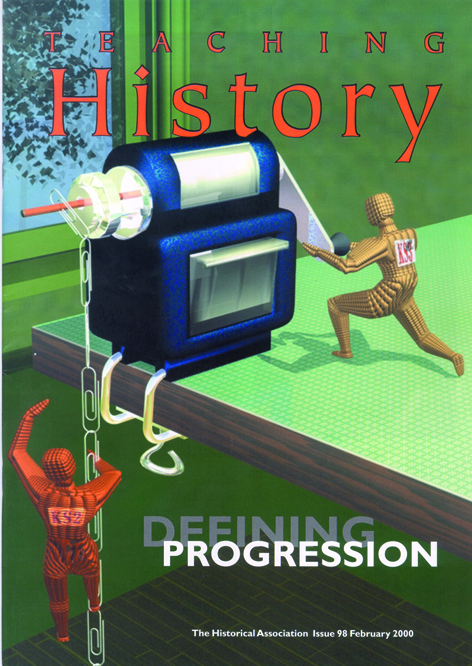Teaching History 98: Defining Progression
The HA's journal for secondary history teachers

Defining Progression
This issue deals with defining and examining the question of what constitutes progress in history. Using audience centred writing to improve progression from Key Stage 2 to 3, Steering your Ofsted inspector into the long-term reasons for classroom success, Using Key Stage 3 to improve performances at GCSE, Learning to teach historical concepts and much more...
The Evacuee Letter Exchange Project: using audience-centred writing to improve progression from Key Stage 2 - Jenny Parsons (Read article)
Year 10’s thinking skills did not just pop out of nowhere: steering your OFSTED inspector into the long-term reasons for classroom success - Sue Dove (Read article)
My essays could go on forever: using Key Stage 3 to improve performance at GCSE - Diana Laffin (Read article)
Suffrage, feudal, democracy, treaty... history’s building blocks: learning to teach historical concepts - Jacques Haenen and Hubert Schrijnemakers (Read article)
Achieving progression from the GCSE to AS - Angela Leonard (Read article)
What is progress in history? - Evelyn Vermeulen (Read article)
Cunning Plan: Britain 1750-1900 - Richard Cunningham (Read article)
Move Me On: trainee is struggling with marking and assessment (Read article)
Open the attachment below to read the full journal.
This resource is FREE for Secondary HA Members.
Non HA Members can get instant access for £24.00

